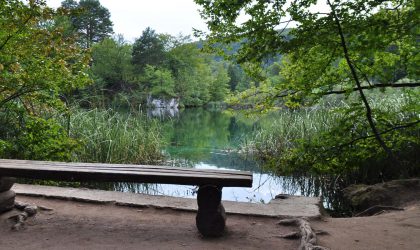Treatment Services Available
A number of treatment services are provided through the CDATF local drugs strategy. These are provided through local community addiction projects or by CDATF itself. Further details can be accessed by clicking on the tabs below.
-
Clondalkin Addiction Support Programme
Clondalkin Addiction Support Programme (CASP) is a service for individuals who use substances over the age of 18 and their family members. It is a service where people can avail of both medical and holistic treatments. CASP was established in 1995 by community members, and workers in local, voluntary and youth organisations as a response to the growing numbers of younger heroin users in the Clondalkin area. CASP provides an integrated, community-based substance treatment service focusing on the physical, psychological social and spiritual needs of the people that use substances and their families.
Interventions
- Drop In Service
- Needle Exchange
- Counselling
- Key Working
- Family Support
- Prison Links
- Methadone Service
- Holistic Treatments
- Primary Health Care
Clondalkin Tús Nua
Clondalkin Tús Nua is a community-based substance intervention service located in Bawnogue. It was developed in 1997 by a group of concerned parents as a community-based response to the drug problem in southwest Clondalkin. They offer a range of services to meet the needs of problematic substance users and those effected by a loved one’s substance use such as parents, partners, and siblings. All service-user’s needs are identified through a comprehensive assessment. A treatment plan is then developed to support them. A new initiative that has been undertaken by CTN is the Recovery Roaders Cycling Club which combines many of the dimensions of recovery to provide an additional innovative option for service users.
Interventions
- Needle Exchange
- Crack Pipe Exchange
- Drop In Service
- Homeless Provisions
- Key working
- Therapeutic Group Work
- Holistic Therapies
- Family Support
- Counselling
Station 1 Rehabilitation and Development Programme
Station 1 Rehabilitation Programme is a day programme tailored to meet the needs of individuals in recovery. In 2006 Clondalkin Tus Nua highlighted the lack of locally based community employment places for people in early recovery. The aim is to provide a therapeutic setting to focus on returning to work and gaining social and economic independence while providing therapeutic support to maintain their recovery needs. The programme operates a morning and afternoon programme. It offers educational, holistic and therapeutic interventions to participants.
Contact Details
Tel: 01 457 5556
Website: https://www.clondalkintusnua.ie/station-1-rehabilitation-programme
Clondalkin Youth Drug & Alcohol Project
Clondalkin YDAP is a Drug and Alcohol service that supports young people from 12-21 years old who are experiencing issues in relation to substance misuse. Support is also offered to parents and families to provide them with coping skills and enable them to help the young person with their treatment pathway. The aim of this service is to ensure appropriate services and treatments are provided to young people in the area, reduce harm and to develop their own capacity. This includes empowering them to solve their own difficulties. They work alongside other agencies to ensure best possible outcomes for young people attending their service.
Clondalkin Travellers Development Group
Clondalkin Travellers Development Group (CTDG) was established in 1989 to address the needs of Travellers in the Clondalkin area. CTDG is a partnership between Travellers and non-Travellers working to promote the rights of Travellers as a nomadic ethnic group within Irish society. Clondalkin has a large population of Travellers. Travellers in Clondalkin face similar issues as those experienced at national level. Since 1989, CTDG have spent significant time developing a model of community work, which meets the needs of Travellers and responds to issues as identified by Travellers. CTDG works from a community development model of community work. It is a mechanism through which Travellers can collectively address the issues that are affecting their community. It is a rights-based approach which values the distinct, social, cultural, and economic needs of Travellers as a nomadic ethnic group in Ireland.
Interventions
- Primary Healthcare Programme
- CrossBar Bikes
- Accommodation
- Support for Drugs and Alcohol Misuse
CDATF Service User Representative
Nicholas Jose Diez McKenna works with Clondalkin DATF as the Service User Representative. His role ranges from advocating and support for service users as well as responding to the needs of the community as he describes below.
“As well as representing and sharing the voice of service users in the task force, I also provide support should service users have any questions, queries or would like to discuss their experiences in context with substance use and accessing services. I provide an advocacy service for service users who would like to provide feedback or would like me to advocate on their behalf to submit a complaint to a service.
I also provide Naloxone and overdose response training for the community. Ali, the T&R officer and I are developing a community Naloxone project to ensure that everyone in the community can receive training and to ensure that those at risk of an opioid overdose can access Naloxone.
I also produce the ‘Clondalkin Recovery’ newsletter which promotes recovery, provides a platform for services and service users to highlight issues and share their voice. The newsletter increases community awareness around recovery and substance use. We also feature a public health article in each edition to raise awareness on emerging issues.Call Us
(01) 457 9445
Other Local Services
We fund, support and in some cases directly provide a wide range of drug and alcohol services in the Clondalkin area.
Latest Resources
CDATF Annual Accounts 2023
As a registered charity and CLG CDATF publishes a copy of our audited accounts each year.
CDATF Annual Accounts 2022
As a registered charity and CLG CDATF publishes a copy of our audited accounts each year.
CDATF Annual Report
This Annual Report highlights the work carried out by and through the Clondalkin Drugs and Alcohol Task Force (CDATF) in 2022. Established in 1997, CDATF is one of 14 local Drugs Task Forces which are local area responses to the causes and consequences of drugs use in the areas most badly affected by these issues.
CDATF Strategic Plan 2018-2025
Clondalkin Drug and Alcohol Task Force Strategic Plan 2018 - 2025 Reclaiming Community Development as an Effective Response to Drug Harms, Policy Harms, Poverty and Inequality
Clondalkin Recovery Month 2023
Well done to everyone who took part in recovery month in Clondalkin this year. Here's a video that looks back on everything that was done througout September 2023.
Recovery Choir Christmas video
And that's a wrap for Clondalkin Recovery Choir for 2023. The choir has had a great time singing for people throughout the year. They've especially enjoyed the hectic schedule of events over the past month that involved the performances featured in the vide.
CDATF Input at CADU
CDATF's recent input at the Citizens Assembly on Drugs
Drug Information
Drugs.ie is managed by the HSE National Social Inclusion Office. They are responsible for providing services connected to a range of issues and vulnerable groups.
This UK web-site provides information and advice to anyone concerned about drugs
Drug Treatment, Education & Training; Basic – University Level
Government Agencies / Research & Policies
The Drug Misuse Research Division of the Health Research Board
Health Services Executive
International Harm Reduction Association
The National Advisory Committee on Drugs
The National Treatment Agency is a special health authority, created by the Government in the UK in 2001 to improve the availability, capacity and effectiveness of treatment for problem drug use in England
United Nations Office on Drugs and Crime
Drug Policy
National Documentation Centre – search our repository of Irish drug-related research and use a range of other valuable material
Support
The Drug Treatment Board
Anna Liffey Project
Samaritans
Recovery through Art, Drama and Education
Childline
Narcotics Anonymous
Al Anon for family and friends of alcoholics
Dublin Aids Alliance
Merchants Quay Ireland
The National Charity for Alcohol related Issues
Other Useful Websites
The Local Drugs & Alcohol Chairpersons Network is a network of chairpersons of Local Drug and Alcohol Task Forces. Chairpersons are voluntary and independent. The primary purpose of the LDATF Chair’s Network is to be the representative voice of the Local Drugs & Alcohol Task Forces Task Forces
In 2021 CDATF established a group of local community representatives to re-establish the voice of the community at the heart of the work of CDATF. Over the past three years the group have met regularly to discuss the issues local people face related to substance use. In 2022 the group produced a handbook to improve the sustainability of the group and form a basis for the group’s future development. The handbook is linked for anyone interested in getting involved in the group.
You can learn more about the work of the community representatives by viewing the video below.
Building Voices Project
In 2023 the Reps took part in a creative project with artists Sadhbh Lawlor and Gary Gowran. The project resulted in the production of an animated video that reflects on what it is like to live in the area and what issues are faced by residents.
Click Here to contact us if you are interested in learning more about the work of the Reps or to get involved yourself.
#kickthevape Campaign
In Ireland over recent years there has been a significant increase in the number of adults and young people using e-cigarettes/vapes. This increase has been a concern in communities nationally and also within our local communities across Clondalkin and Tallaght.



